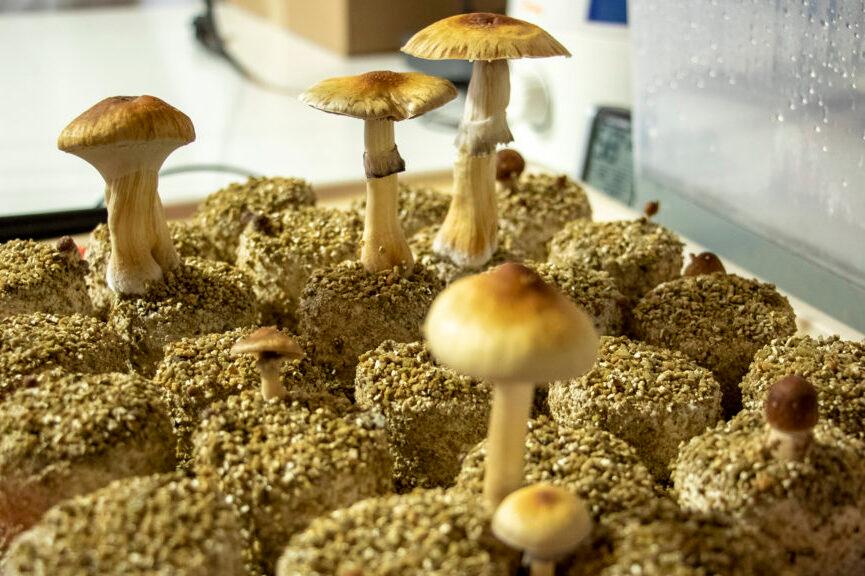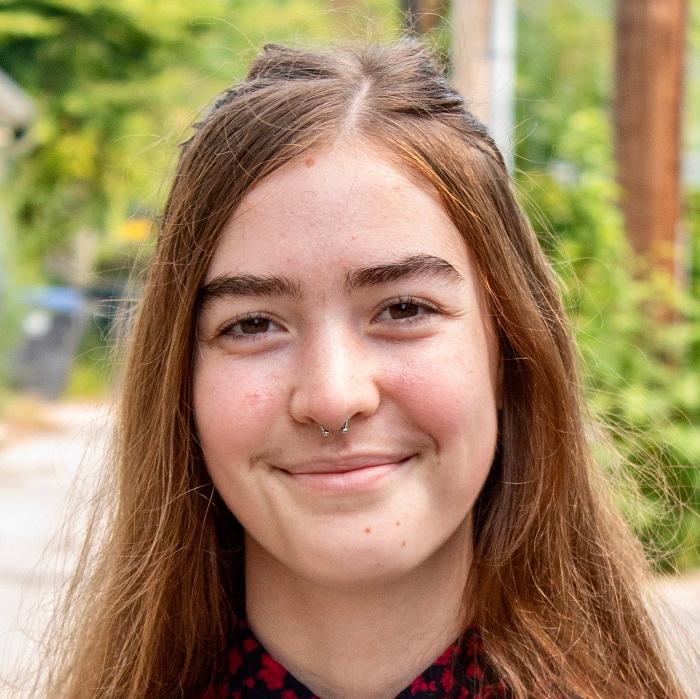
An initiative to legalize psychedelic mushrooms statewide just landed on the ballot after the Secretary of State’s office verified its petition on Thursday. But proponents of a different approach to the same issue said they’ve begun collecting signatures to offer Coloradans an alternative in November.
For now, Coloradans can expect to vote on the Natural Medicine Health Act this fall. For those 21 and over, the measure would decriminalize the possession, growth and gifting of mushrooms containing psilocybin and psilocin, which are hallucinogenic compounds found in certain strains – but it would not allow retail sales.
Instead, the NMHA would legalize state-licensed “healing centers,” where facilitators would administer the substances. NMHA organizer Kevin Matthews said it’s critical to give Coloradans a choice: using the mushrooms on their own or in a regulated space.
“Especially folks who may have some kind of diagnosis, like major depression or anxiety, these individuals would likely want to – at least at first – have an experience with these natural medicines in a structured, safe setting,” he said.
In contrast, Initiative 61, which still must collect and submit about 124,000 valid signatures in order to make the ballot, wouldn’t legalize these substances – just decriminalize them. It would also expand decriminalization to include psilocybin, psilocyn, ibogaine, mescaline and DMT. These psychedelics, derived from plants and fungi, are all designated Schedule I substances under federal law.
Initiative 61 organizer Melanie Rose Rodgers cautioned the implementation of a legalization model that would profit off “sacred Earth medicines.” First, she said, these psychedelics should be decriminalized to protect individuals’ access.
“Decriminalization isn't a popular thing for companies and corporations and venture capital,” Rodgers said. “Decriminalization is for the people.”
Initiative 61 would halt legal penalties for the possession, use, growth, gifting or delivery of these substances for people over 21. It goes further than Denver’s decriminalization initiative, which deprioritized criminal penalties for psilocybin possession and personal use.
Dawn Reinfeld, executive director of Blue Rising Together, an advocacy nonprofit against high-THC marijuana, said she’s opposed to both measures. She worries that mushrooms could easily get into the hands of kids – and that mainly businesspeople would be at the table making decisions.
“We've seen this playbook before with big tobacco, big pharma, big marijuana, they all come in and make unsubstantiated medical claims,” Reinfeld said. “Colorado is in the midst of an addiction and mental health crisis, and the last thing we need is to introduce psilocybin into the mix.”
Organizers of the measure that has yet to make the ballot say it’s too soon for legalization.
Nicole Foerster, an organizer of the campaign for Initiative 61, worries that Coloradans may view psilocybin as a quick-fix treatment, especially if a facilitator or health care provider can administer it.
Some research has shown that psilocybin can potentially benefit those suffering from depression, anxiety and PTSD. Matthews said that providing Coloradans with this treatment choice is especially important, as a mental health advocacy nonprofit ranked Colorado as the worst state for overall adult mental health this year.
“They're not like a magic pill. With anything with healing, it takes work,” he said. “Our measure, with the guardrails, with the safety protocols in place, creates a new way for folks to address the mental and behavioral health challenges they’re facing.”
Foerster takes a different view. They said people shouldn’t be jailed or punished for using these substances, but it’s too soon to allow someone to charge for a “healing service” at this stage of research. They also noted that the health care system isn’t built to be safe for marginalized people to access.
“If Colorado has some of the worst mental health care in the nation then that is the last system we should be pumping these medicines into,” Foerster said. “My primary goal is to protect the presently occurring access that we know is happening, rather than to create a new framework at this point in history.”
NMHA organizer Veronica Lightning Horse Perez recognized that the clinical setting may not be comfortable for some people – and said that the decriminalization aspect of the NMHA protects that. But she also said she’s heard people express fears of trying it by themselves.
“The needs and desires are all over the map,” she said. “So it comes down for me to the right to heal and personal sovereignty.”
The organizers of Initiative 61 said they created the measure in response to the NMHA, specifically to address some community members and organizers’ concerns.
When CPR News reached out to the NMHA campaign for another interview about 61’s concerns, they declined. They said in a statement that after over a year of work, they are proud of their team and “firmly believe (they) can help the most people in the safest way with a regulated program, trained facilitators, and clear guardrails.”
As for 61, they’re on a short timeline – the last day to turn in signatures for the Secretary of State’s office to verify is August 8. Rodgers said they hope to get enough signatures by then, but it’s hard, since they are working off a volunteer force and mostly small donations.
One of Rodgers’ primary issues is the funding behind the NMHA: about $2.5 million from New Approach PAC, a Washington, D.C.-based nonprofit that has contributed to measures to legalize cannabis across the U.S.
In a statement to CPR this month, New Approach chief of staff Taylor West said she’s personally based in Denver, and it’s their “mission as an organization to support policy reforms focused on healing and common sense.”
If voters decide to legalize, the state would have to figure out what to require of facilitators.
The NMHA establishes that facilitators must undergo training that includes education on client safety, mental and physical health, and social and cultural consideration.
That training would be decided by Colorado’s Department of Regulatory Agencies, along with the recommendations of a Natural Medicine Advisory Board. DORA would approve or reject licenses in the legal access framework. This wouldn’t apply to the personal use and growth of psilocybin, said Matthews.
Foerster said this would give too much power to a small number of people in the state – and they weren’t convinced that the board would prioritize people most affected by the issue.
“I worry specifically about people who have rights battles in the currently existing health care system,” they said. “(If) it’s people who aren’t in those specific marginalized populations making decisions for those people, that really concerns me.”
The NMHA does not specify that members must hold particular identities. But it does lay out some requirements for the board: The governor, with consent from the state senate, would appoint 15 members, with at least one member with experience in traditional Indigenous use of natural medicines. It also notes that members should have backgrounds in categories such as natural medicine cultivation and research; emergency and mental health services; and drug policy and harm reduction.
The NMHA also requires DORA to create a number of rules, including incentivizing “demographic and cultural diversity” for licenses for natural medicine services.
To Rodgers, who is Filipino, this provision isn’t enough. She pointed to Colorado’s marijuana industry, where most marijuana licenses are owned by white people, according to state data. A recent Department of Safety report found that Black Coloradoans were arrested at more than twice the rate than white residents for marijuana-related charges in 2019. Rodgers said she doesn’t want the same to happen to psychedelics.
“For me, it was really standing up for that voice for equity,” she said. “I’m not interested in creating new industries where only rich white men can play and profit, and people with a legacy of using these substances won’t be able to pay their way in.”
Whether Initiative 61 will join the Natural Medicine Health Act on the ballot remains to be seen. But if either measure passes, Colorado will become the second state in the nation to decriminalize psilocybin mushrooms.








